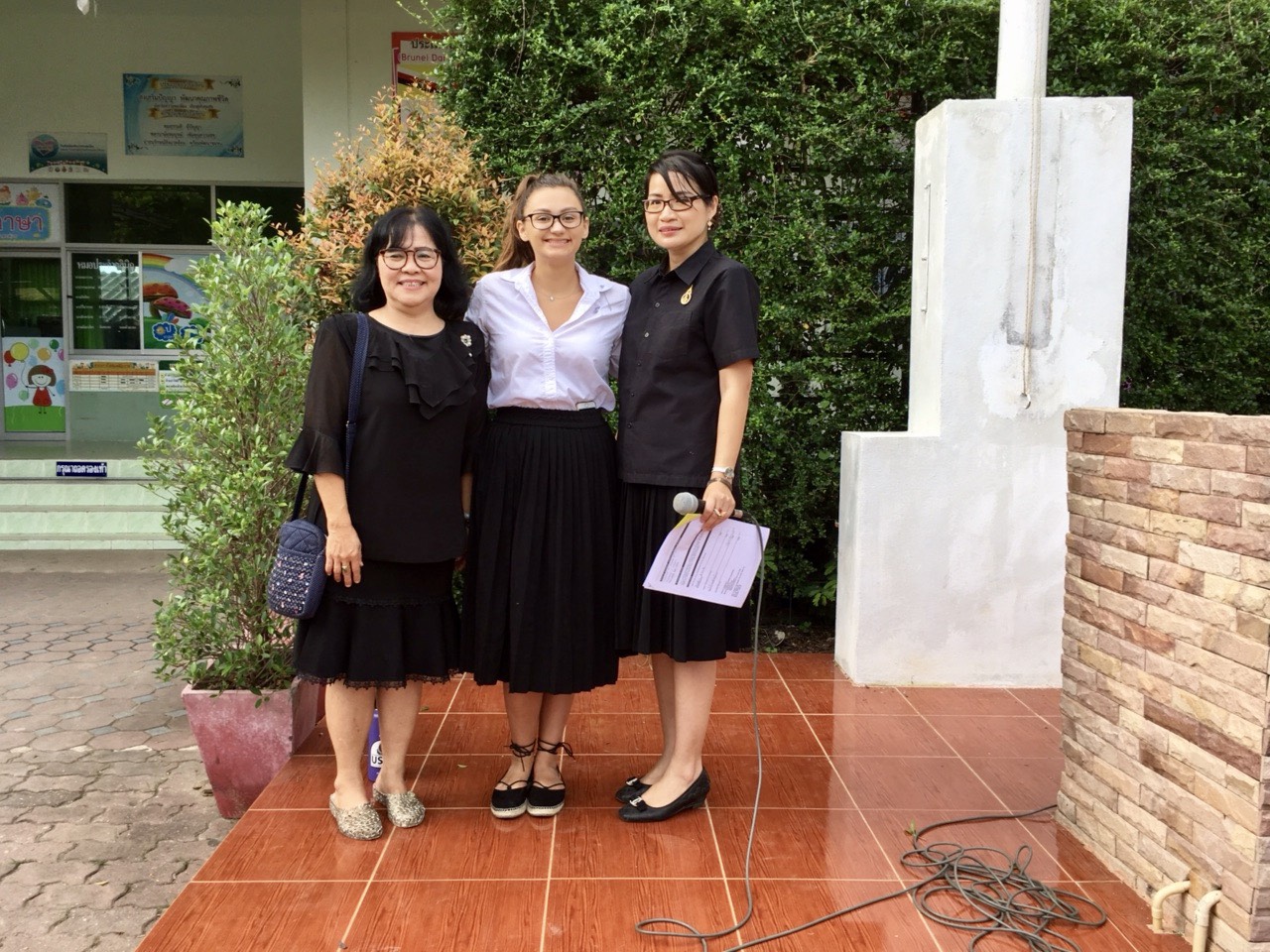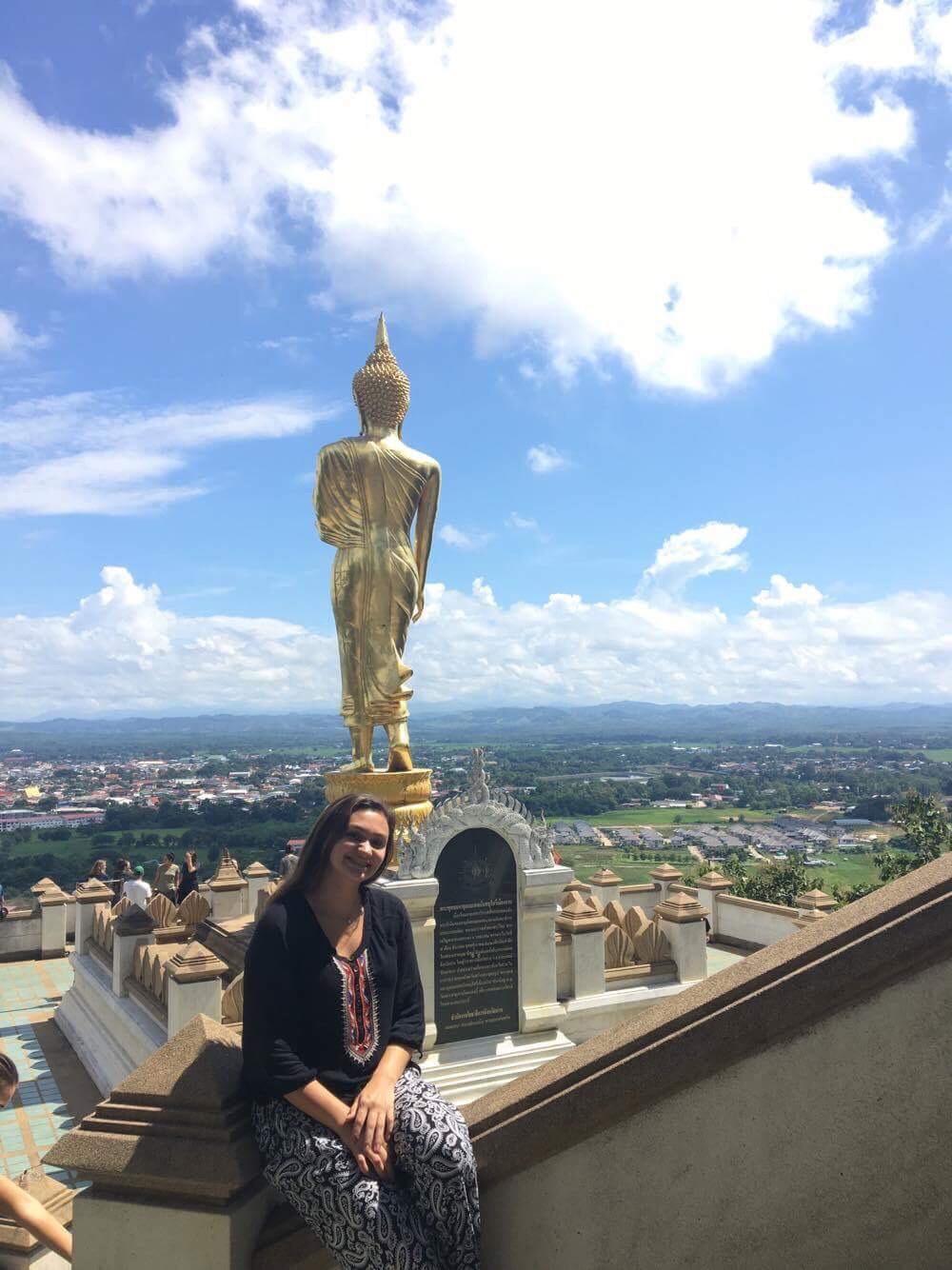
Name: Peyton Griest
Major: Communication Studies
What was your drive behind studying abroad in Chiang Mai, Thailand? How has it been?
Many factors influenced my decision and drive to study abroad. I have an undeniable love for travel and the thought of living in a culture that is so different from my own was an experience I knew I wanted for myself. With that being said, I hope to live abroad one day and studying abroad was a great way to see if a more permanent life abroad was the right choice for me. Studying abroad was also the perfect financial way to integrate a long period of travel into my current life status as a student. I am paying for my education myself, so it’s more challenging for me to afford both my education and travel separately. Combining them through studying abroad has been amazing because I’ve paid about the same amount as a typical semester at CSU, but I get all of these incredible international experiences. Studying abroad has easily been one of the most transformational experiences of my life. A few of my most treasured aspects to my semester so far have been the friends I’ve made here, spending my fall break travelling in Vietnam, and working as an English intern. I think that one of the most rewarding part of this experience and markers of personal growth is reaching the point of feeling at home in a place that is so different from United States.
What are some of the major differences between college students in Thailand vs. here at Colorado State?
One of the major surface differences is that we actually have to wear uniforms! I’ve never had to wear a uniform for school before, so wearing one for university was especially interesting. I actually love it because I don’t ever have to think about what to wear! Course structure and instruction style are also very different in Thailand. Due dates are much more ambiguous and flexible and the syllabus is much more of a guide to the class rather than a definitive schedule. The looser structure and instruction style has been one of the more challenging aspects to become accustomed to. I feel that in the U.S. we are used to such a rigid educational structure with a much more monochronic time orientation, so that abiding to a more polychronic time orientation makes us feel uncomfortable.

Are you doing an internship while you’re there? If so, what is it?
I am an English Intern at Thasatoi Municipal School. Thasatoi Municipal School is a K-9 school in Wat Ket District, Chiang Mai, Thailand. I applied and was placed at Thasatoi through USAC, my study abroad program here in Thailand. Roughly 12 hours a week I assist the secondary school students in learning English. My internship supervisor Marinee Mahakunwong has been an integral factor in my positive experience as an English Intern. When I saw my internship placement I was excited and also cautious about the experience as I know very little Thai. However, my passion for intercultural communication and kids kept my curiosity thriving and my excitement alive. In my time at Thasatoi, I have assisted Marinee in curriculum preparation, tutored English, and lead classroom activities. I love the beauty and intelligence of the children I teach/am surrounded by. I am amazed by how open-minded the children are in learning about me and my culture. I feel that the kids are teaching me just as much as I am teaching them. Having an internship while studying abroad has been such an honor and without fail, I leave the school feeling so grateful and happy every time.
Of the coursework you have taken in Communication Studies, what has been the most useful to you during your time in Thailand? Has the experience led you to want to know more about any particular aspect of communication?
One course sticks out the most was Dr. Julia’s Intercultural Communication course this past spring. Studying abroad definitely has intensified my curiosity for intercultural communication! I love how my internship has taught me to be patient. I consider myself a decently patient person, however certain things can frustrate me quickly. While I have not felt frustrated at Thasatoi, there have been times where I’ve felt impatient when communicating. I love intercultural communication and love studying it, but executing it as a skill is different than learning it. Theory is always much smoother than practice. There have been several times where I am communicating with Marinee, other teachers, or even the kids where there is a miscommunication due to either the language barrier itself or a cultural barrier. There have been moments within these moments I feel impatient or upset that communication is not going as smoothly as I would like. It is within these moments I remind myself to be more mindful and patient. Reminding myself that I am not the only one who is having to decode a language and work in understanding an accent has been important. Studying abroad and my internship have proven to me that even though intercultural communication was an elective at Colorado State, it’s a necessary skill in order to get the most out of your international experience and remain a respectful visitor in your host country.

If you’ve been a CMST major since your freshman year, what made you interested in this degree and well as your minor? If you changed your major or were undecided and then declared, what led you to select communication studies?
I began my university career as a microbiology major. I very quickly realized that I was not as into science and the thought of medical school as I was in high school… I clearly remember sitting in one of my hallmate’s rooms during registration week breaking down because I knew microbiology was far from what I wanted but didn’t know what I did want. One of my other hallmates then mentioned she was a communication studies major and noted how much she loved her courses and specifically how nice those in the communication studies advising office were. I had some elective credits to spare, so I just took a chance and signed up for a comm studies course. The end of that next semester I went to officially change my major to communication studies with a sociology minor and the rest is history. Every semester since then I’ve grown to love communication studies more and more.
What do you like most about your major and how do you see it playing a role in your future – whether as a student or in a job/career?
I love that one of the cornerstones of communication is about making meaningful connections with people. I am very much a people person. I love interacting and making purposeful connections with those around me. My goal right now is to attend graduate school for marriage and family therapy to become a therapist. For more obvious reasons, communication is important for my desired profession as a therapist, but I feel that my major has allowed me to enhance my communication skills the personal realm of my life as well. I feel that communication studies has allowed me to consume media more critically and become a more engaged communicator. The department has such amazing professors that are not only skilled educators but admirable role models. I’d like to give a special thank you to Dr. Abby Veliquette and Dr. Katie Gibson for being encouraging and brilliant educators.
(Q&A continues below slider images)